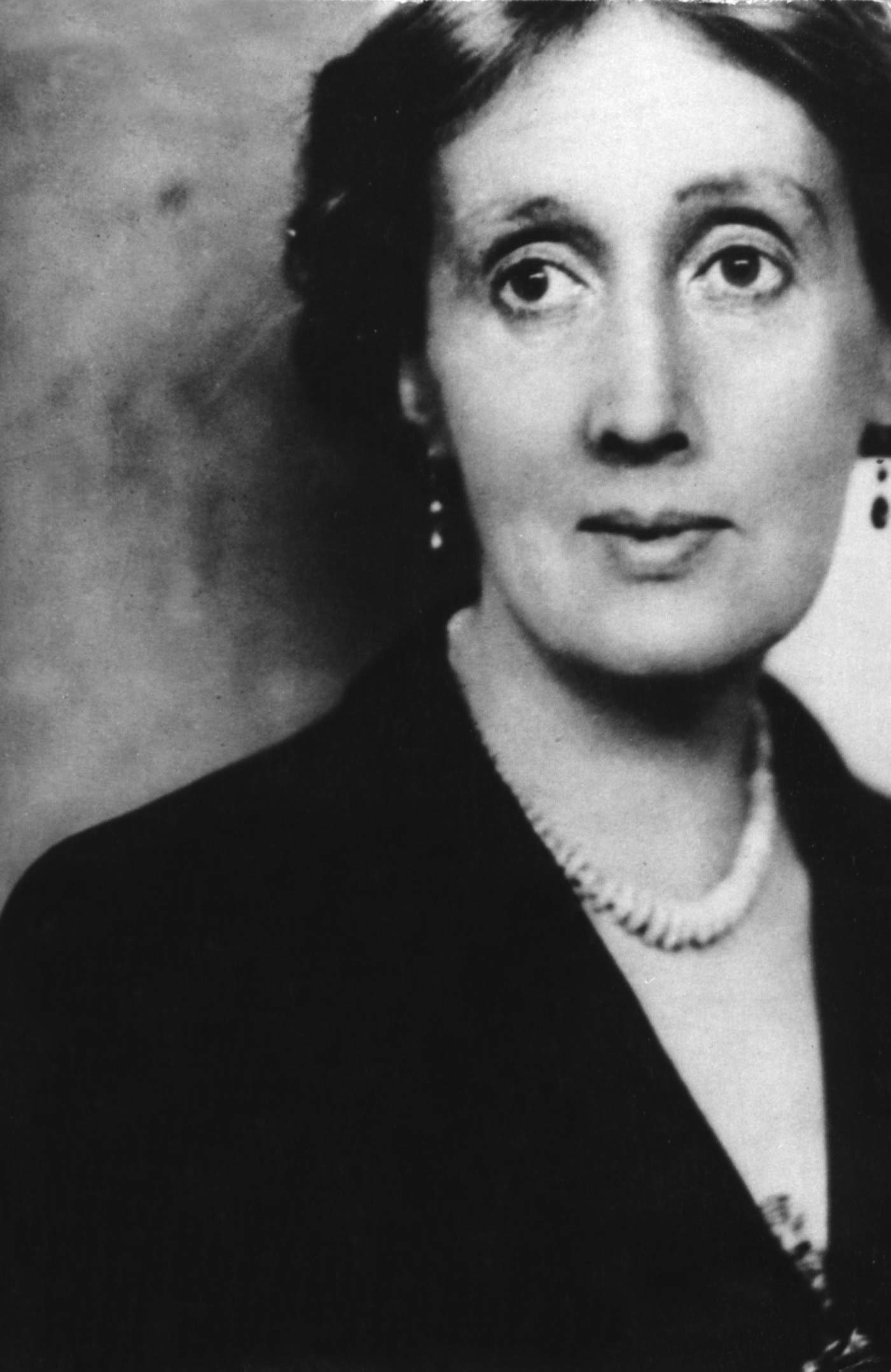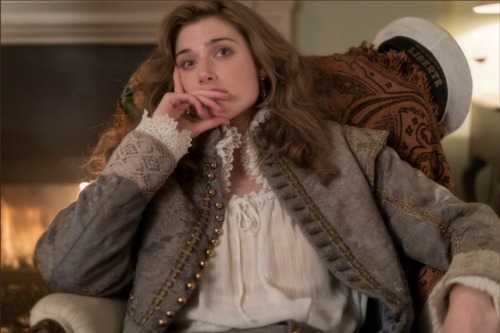Ellie Mitchell on ‘Vita and Virginia’
Virginia Woolf and Vita Sackville-West first met at a dinner party in December 1922. It was not love at first sight.
Rather, Woolf remarked in her diary the following day that Sackville-West was ‘not much to my severer taste – florid, moustached, parakeet coloured, with all the supple ease of the aristocracy, but not the wit of the artist’.[1] This is hardly high praise, even when taken in the tongue-in-cheek way in which Woolf often referred to her peers in her diaries. Indeed, she continued to make similar remarks throughout the following two years. She called Sackville-West ‘incurably stupid’ on one occasion, wrote that she was possessed of ‘no very sharp brain’ on another, and noted offhandedly in December 1924 that her ‘habit of praising & talking indiscriminately about art’ was one which ‘goes down in her set, but not in ours’.[2]
Virginia Woolf
Woolf’s relationship with Sackville-West during these early years could be described as a sort of humouring – a distant, amused and almost intellectual interest that, in Woolf’s own words, only ‘might be a friendship of a sort’.[3] To gloss over this initial coolness on Woolf’s part is to do a disservice to all that these two women’s relationship later became, but is one of the many mistakes that Vita and Virginia (2019, dir. Chanya Button) makes as it strives merely to make an aesthetic of its characters and their story. If you do go to see this film, I recommend taking a strong drink and a compassionate friend.
She is a pronounced Sapphist, & may, thinks Ethel Sands, have an eye on me, old though I am […] Snob as I am, I trace her passions 500 years back, & they become romantic to me, like old yellow wine.[4]
Elizabeth Debicki
These are the words of a shrewd, discerning woman of forty-one with three well-received novels on the nation’s shelves, an inclination to snobbery as much as to melancholy, and a gift for delighting – fiercely, playfully, curiously – in life and in all that she encountered. They are not the words of Elizabeth Debicki’s dewy-eyed, willowy and wholly tiresome Woolf who, when Sackville-West first meets her, is floating around the room and affecting a ludicrous ethereality. I may, at this early point in the film, have downed my entire glass of wine in despair.
The film’s first mistake was its casting. Elizabeth Debicki is an excellent actress. She is also twenty-eight years old, and there is only so much any twenty-eight year-old actress can do to portray a forty to forty-six year-old woman, even when that woman isn’t as complex and infamous a figure as Virginia Woolf. Gemma Arterton, at thirty-three years old, was far more sensibly cast as the thirty to thirty-six year-old Vita Sackville-West, and I cannot help wondering if the film would have been improved significantly if Button’s first choice of the thirty-nine year-old Eva Green hadn’t had to pull out of the role of Woolf.
However, age-appropriate casting is not the only thing missing in Vita and Virginia. Accurate characterisation, too, is sorely lacking. Both women are portrayed as glamorous, delicate, and possessed of a dreamy, sapphic softness that smothers all of their edges. Where are Woolf’s terrible dress sense and her dry sense of humour? Where are her snobbery and her genius? Where are her opinions and her diatribes, her long walks and her pronounced affection for family and friends? Where, for that matter, is Sackville-West’s love of gardening and the outdoors? Why is she never muddy, never with a hair out of place, never with dirt beneath her nails? Why is she never rude or crude or aristocratic? Why not remotely florid, moustached or parakeet coloured on first appearance?
Vita Sackville-West
These absences are only isolated instances of Hollywood’s wider issue with portraying women as they really are or were. These women were shabby, not chic. They were middle-aged. They said and thought and felt things we may disagree with today. They also said, thought, felt, and most importantly wrote things we may agree with, pore over, and adore today. Any good screen representation of these two women should allow them to be and do all of these things. Vita and Virginia does not.
The film’s aestheticism distorts Woolf and Sackville-West and it distorts their story. Importantly, it distorts their words and the nature of their flirtation, most of which played out in their letters. The script takes words from their letters and puts them into their mouths, makes the written word the spoken word, and in doing so makes a mockery of both. People do not speak as they write; nor do they write as they speak. An epistolary flirtation differs so fundamentally from a face-to-face one. It is a showing-off with words, a performance, a meeting of minds rather than of bodies, a poetic dance and a form of courtship that carries with it many centuries of history and tradition. By turns beautiful, funny, cruel, flirtatious, coy, grumpy, witty and baffling, these two women’s letters are utterly robbed of effect when said aloud. I cringed a lot, and wished I had another glass of wine to drown my embarassment with.
Gemma Arterton
What truly offended me, though, as opposed to merely frustrating me, was the presentation of Sackville-West as both the cause and cure of Woolf’s most severe depressive episodes. This constitutes not only an irresponsible portrayal of depression, but also a belittlement of Woolf’s own suffering and strength, and of Leonard Woolf’s patience, care and affection for her during these episodes. In particular, the speed, playfulness and delight with which Woolf wrote Orlando (1928) after finishing To the Lighthouse (1927) is erased in order to paint the composition process as the tortured, pained and almost vengeful labours of a jilted lover. For anyone who has read Orlando, a novel which proved to be an innovative and rewarding venture for Woolf as well as ‘the longest and most charming love letter in literature’, this is jarring at best and offensive at worst. It is disrespectful to both women and to Woolf’s writing.
The faults I have listed resemble, too closely for comfort, the heteronormative narrative tropes of love-at-first-sight, the manic-pixie-dream-girl, and lover-as-saviour. As a woman who loves women, and as an avid reader and researcher of both Woolf and Sackville-West, I left the cinema feeling wronged, again, by the misrepresentation of female friendship, affection and desire. This is not how women love, and it is not how these women loved.
Ellie Mitchell, Cambridge
[1] Diary, II, 15 December 1922, p. 216.
[2] Diary, II, 17 March 1923, p. 239; Diary, II, 5 July 1924, p. 306; Diary, II, 21 December 1924, p. 325.
[3] Diary, II, 15 September 1924, p. 313.
[4] Diary, II, 19 February 1923, pp. 235-36.




